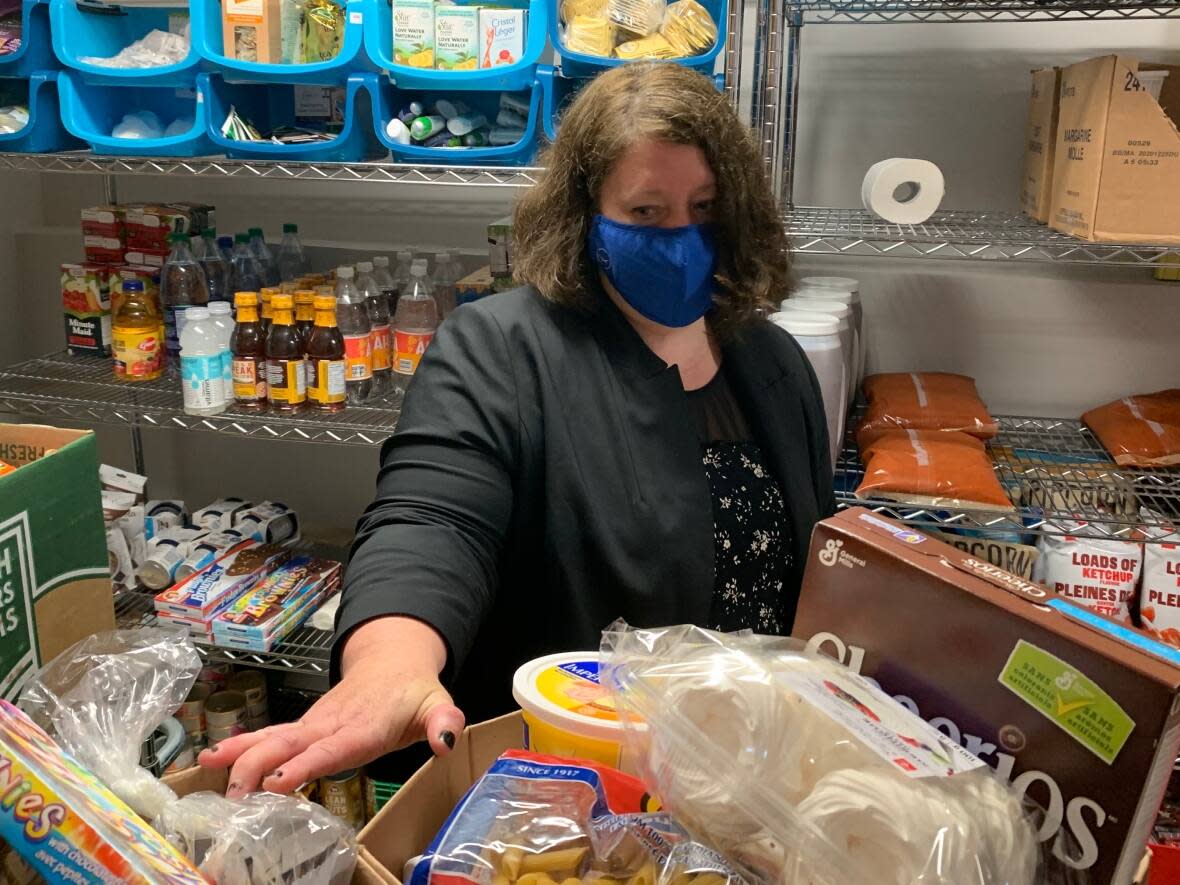Improved public transit proposed as a way to help address food insecurity as fuel prices rise

Non-profit organizations in Newfoundland and Labrador say the high price of gas is affecting food security in the province, but some believe expanded and better integrated public transit could be a way to help.
The chairperson of the Society of St. Vincent de Paul, which runs the Carbonear Food Bank, said she's concerned people in their 350 kilometre area aren't able to get the food they need.
"They can't afford to put gas in their vehicle to come," Kerri Abbott said.
"By the time they pay their bills or keep the roof over their head, keep some semblance of heat on, pay their light bills, they are down to less than $20."
Abbott said people are simply trying to make their food last by having a couple of biscuits and tea for a meal. She said volunteers are working to do more deliveries to help, but the demographic of people accessing food banks has changed.
"It's 2022 and we are still struggling with food insecurity," Abbott said.
"It is a crisis point.… People that used to be donors are now people that are coming to the food bank."
Transportation 'big barrier' to food
Josh Smee, CEO of Food First N.L., says people in rural areas often have to travel farther to get food and are now spending more to get it.
"There are lots of people in this province who transportation is their big barrier to accessing the food that they need," he said.
"For lots of other people, transportation and the cost of owning a car is eating up so much of their budget that it's really hitting into their food."

However, in looking at the current options, Smee said he sees potential for current rural transit options to be combined into one large system to help people get around — and improve their access to food.
Smee said while the province has a decent network of at least 18 rural transit providers, it's difficult to find the providers and hard to coordinate between them. There's an opportunity to use existing providers to create a network to help people travel, he said.
"Have a single website that just lets people search a route that went across these different providers. And if the providers were into it, you could let people buy tickets on that website," Smee said.
"It would certainly be a huge asset to the community."
Myles Russell, a civil engineering technologist and 3D designer, believes he may have an idea to help in some areas on the northeast Avalon Peninsula.
Russell has drawn up a series of maps and plans for an expanded Metrobus express route system that could stretch from Torbay to Seal Cove.

"There's a huge amount of positive feedback from this," he said.
"Gas prices being high …their gas bills have gone up by thousands of dollars a year."
Taking inspiration from Halifax, Ottawa and Calgary, Russell said he looked into having the bus integration system covering a large area because it means different transit authorities could run the region's buses but the system would still work together in harmony.
"You really need a bus system that has a bunch of local routes that go to a primary area," he said.
"Then uses a direct, fast speed line to where you need to go and at the speed of a car."
Russell said more infrastructure would be required, along with a dedicated transit hub, but it's a worthwhile investment.
"It helps the entire community grow. It helps everybody have some development options," he said.
"Society needs to look at buses as a thing that benefits everybody, not just something that is benefiting those who can't afford a car.'"


